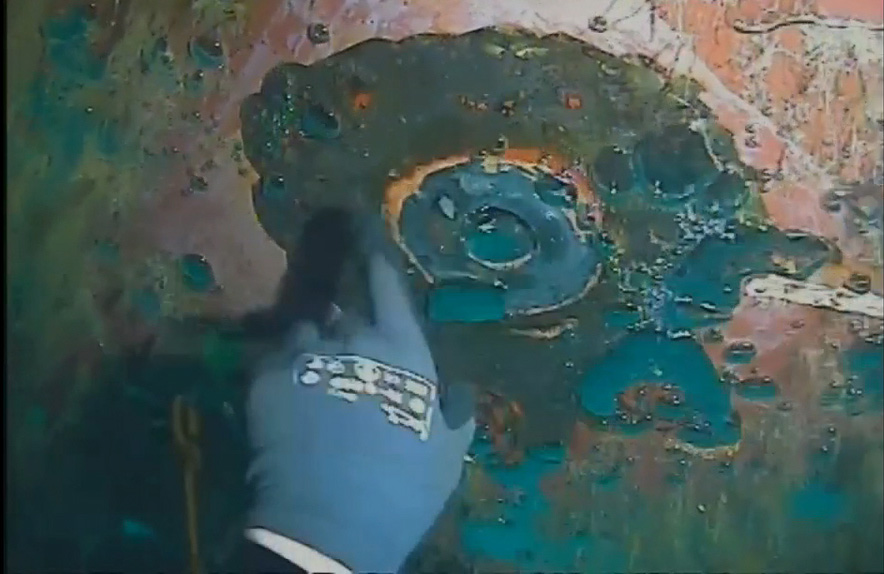Cleaning of Propeller Blades
Key Benefits
Recover Thrust and Fuel Efficiency Without Drydock
Biofouling increases drag and power demand. Cleaning restores blade surface condition while the vessel remains on station.
Prevent Cavitation Damage and Blade Erosion
Surface fouling leads to pitting, vibration, and structural degradation. Cleaning helps preserve blade integrity and operational lifespan.
Compatible With All Major Propulsion Systems
Fixed-pitch, controllable-pitch, and azimuth blades are cleaned using diver-operated tools adapted to blade geometry and material.
Cleaning of Propeller Blades
Service Description
We provide diver-led propeller blade cleaning for propulsion-equipped floating production systems. Over time, marine growth, corrosion residue, and surface fouling reduce propeller efficiency and increased fuel consumption. Left untreated, fouled blades also increase cavitation risk and vibration loads.
Our cleaning operations restore performance and hydrodynamic balance without unmooring or drydocking. Tools and methods are adapted to blade type, material, and fouling severity to ensure effective cleaning.
Read more
Propeller blade efficiency directly affects fuel use, heading control, and system health. Even light fouling causes surface roughness, which increases drag and triggers power loss across the propulsion curve. SubseaPartner performs diver-based blade cleaning using equipment designed for different coatings, materials, and geometries.
What We Clean:
- Fixed-pitch propellers on semi-submersibles and support vessels
- Controllable-pitch systems used on hybrid propulsion or DP assets
- Azimuth blades where access is safe and practical
- Blade edges, hubs, root zones, and transition areas
Cleaning Methods:
- Diver-operated hydraulic brushing tools
- Rotary scrubbing for curved surfaces and coated zones
- Waterjet assisted cleaning for light to moderate growth
- Tooling selected based on blade material and surface condition.
When to Clean:
- Prior to Special Periodic Survey (SPS) or OEM service interval
- Following observed fuel efficiency drop in trending data
- Ahead of cavitation inspection or propeller rebalancing
- As part of lifecycle performance recovery or pre-repair prep
All cleaning is coordinated with onboard teams and propulsion engineers. SubseaPartner provides photographic documentation, work logs, and optional post-clean follow-up inspection.
Alternative: What to Expect Propeller blade cleaning & polishing is performed by certified divers using safe, material-matched tools, with full coordination to limit operational impact and restore propulsion performance.
Operational Scenario
Real Results: Propeller Cleaning Restores Efficiency Without Drydock.
Challenge
Performance trends show rising fuel consumption and reduced propulsion response on a semi-submersible during station-keeping. Engineering suspect moderate fouling on fixed-pitch propeller blades, but the vessel is mid-campaign with no drydock access.
Solution
SubseaPartner deploy a diver team to clean the propeller blades in situ. Hydraulic scrubbing tools and low-pressure jetting are used to remove biofouling from blade surfaces, edges, and hub areas. Propeller blades are then polished to A/B on the Rupert scale. The operation is completed in coordination with propulsion management.
Outcome
Post clean data confirms improved thrust and reduced load. Cavitation inspection is cleared for later in the year, and no interruptions to station-keeping are required. The operator retains full propulsion readiness and avoids additional intervention costs during the current campaign.
Let’s Secure Your Operations
Reach out to SubseaPartner for certified propeller blade cleaning. Our diver-led services restore thrust, efficiency, and blade integrity while minimizing downtime and avoiding costly drydock interruptions.


